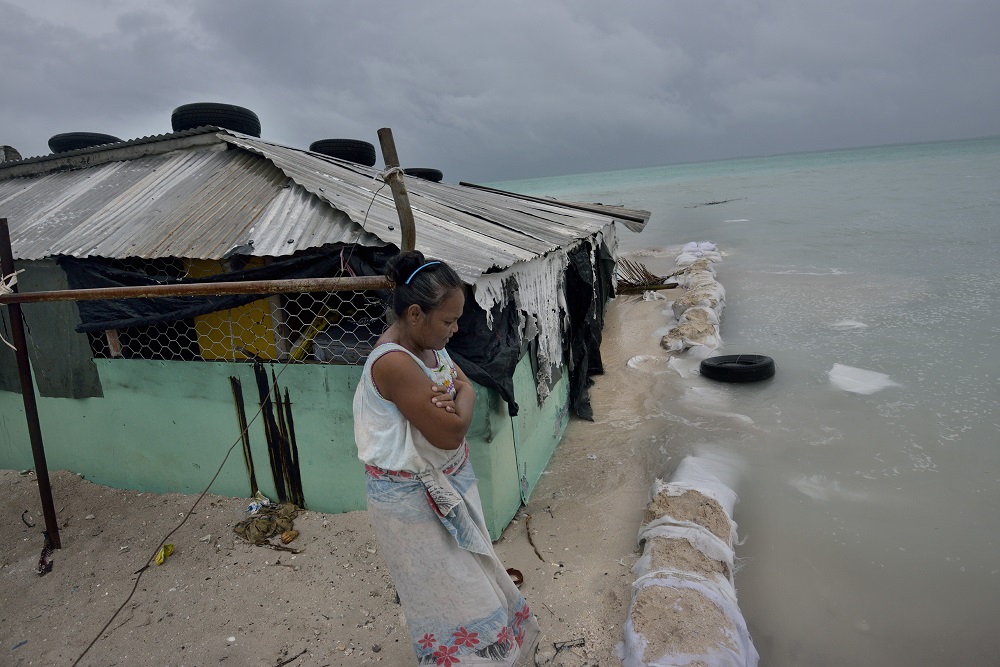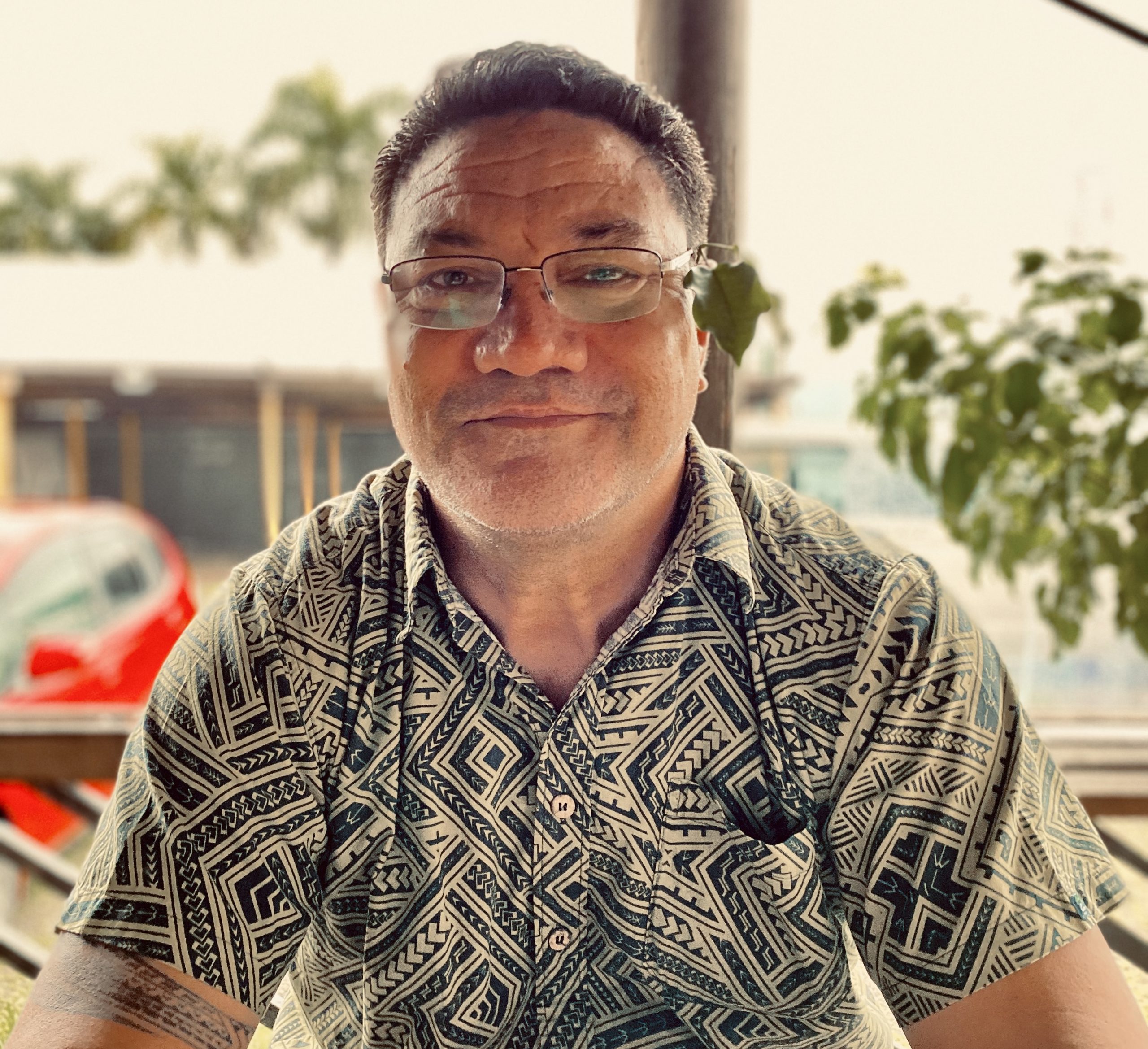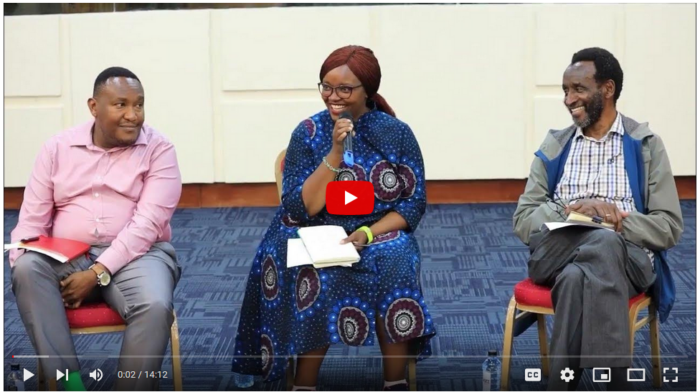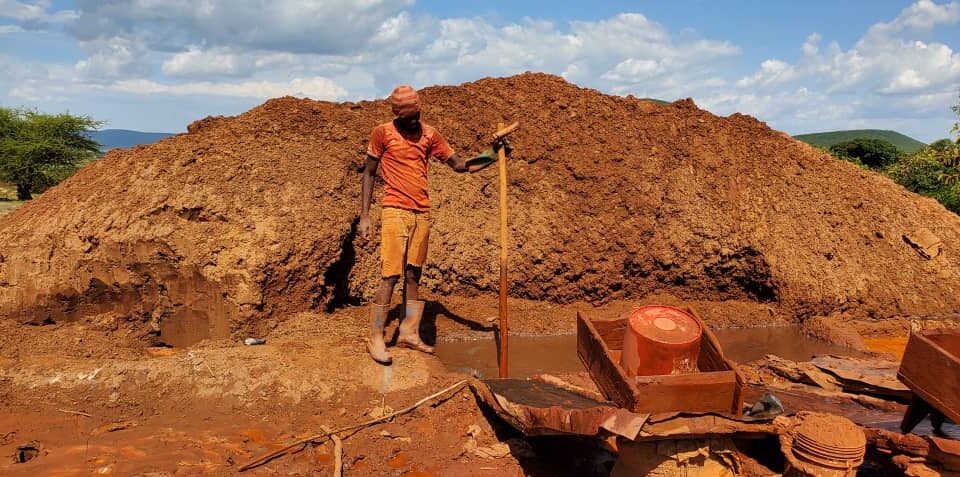What Pacific countries can learn from managing foreign aid more effectively to tackle climate change

On aid, racism and power
December 11, 2020
Bringing more equality into aid and development studies: a view from Makerere University, Uganda
March 11, 2021Few regions in the world are exposed to the threat of climate change as the Small Island Developing States (SIDS) of the Pacific. A constellation of 16 countries and seven territories spread across the largest ocean mass in the world, these states are coming under growing pressure to get the right mix of policies that can counteract the double impact of extreme weather conditions and COVID-19. I talk about these challenges with Alfred Schuster, a native Samoan living in Fiji and now a Development Effectiveness Advisor for the Australia Pacific Training Coalition. Here Alfred explains why it is important to learn from decades of experience managing foreign aid in the Pacific region to address climate change successfully, or at least more effectively.
Hi Alfred, can you tell me how you’ve become an expert in aid and development effectiveness and why?
I don’t feel like I’m an expert, rather an advocate. I started as Development Cooperation Adviser at the Pacific Islands Forum Secretariat [the Secretariat] in 2009. At the time, Pacific leaders were hoping to advance a united agenda on the Millennium Development Goals [a set of global objectives for advancing human progress, originally agreed in 2000 for fifteen years] but results were relatively slow for the Pacific. This was mostly due to weak systems of public financial management and planning – it wasn’t clear how aid money was being allocated and in particular what development gains were being made. Pacific leaders felt they needed to do more to show accountability. They tasked the Secretariat to deliver more results and facilitate a range of activities to support Pacific countries with their planning and public financial management systems. I had seen the value of engaging in global discussions on aid effectiveness as a way for the Pacific region to become more influential in international development cooperation. Until then, Pacific states would engage with donors bilaterally, which made it difficult to influence donor behavior. I’ve always advocated for Pacific interests. Focusing on regional and multilateral mechanisms seemed an effective way to gain more prominence and impact. In this spirit, the Pacific Islands Forum Secretariat secured a seat in the Steering Committee of the Global Partnership for Effective Development Cooperation (the Global Partnership).
From your perspective, how does development effectiveness differ from aid effectiveness?
One of the key issues coming out of the Global Partnership is the concept of the ‘unfinished business’ of aid [that is, the limited implementation of the aid effectiveness principles agreed in Paris in 2005 and operationalised in Accra in 2008. Principles like having recipient countries define their own development priorities, aligning international aid to their national strategy, promoting mutual accountability, etc.]. To me, that unfinished business was about redefining power relations with donors as former colonial powers. It was about putting systems in place to show the maturity of [so-called] ‘developing’ countries post-colonial era, their efforts in nation-building to govern and make decisions about what was most important to them. In the Pacific region, that’s still an ongoing issue. By shifting to development effectiveness, we have lost the focus on building and monitoring how well those national systems support national priorities, and importantly, how aligned development assistance [both domestic and external] is to those same priorities – but I like to think we haven’t lost sight of that completely. Development effectiveness is an ideal not everyone has reached. I think some countries in the Pacific are still caught up in aid effectiveness challenges, exacerbated by their own capacity and capability issues.
How relevant are these issues to the Pacific region, and Fiji in particular?
For the Pacific, talking about aid effectiveness was a way to promote dialogue and draw attention to improvements needed in donor engagement and action in the region. At the same time, it was also a way for Pacific countries themselves to reflect on how to improve their systems and to be clear about what their priorities were to their development/donor partners. We don’t hear it much anymore, however, focusing on aid effectiveness has led to recognise the important role of partners and how they need to hold each other to account for achieving Pacific priorities – that’s a huge shift in the right direction. Aid effectiveness principles help frame political priorities, particularly when it comes to climate change. As the region which produces the least greenhouse gas emissions in the world but will soon face the greatest impact of climate change, we have vested interests in identifying our own priorities. These principles are critical in redesigning the nature of international assistance. We can apply the same principles to influence the global climate change agenda.
What lessons can we draw from trying to improve development cooperation that we can use to tackle climate change in the Pacific region?
The aid effectiveness principles are transferrable across different priority-setting arrangements. In the Pacific region, there are many climate financing instruments and I recall during my time at the Pacific Islands Forum Secretariat we had long advocated for the same aid effectiveness principles to be applied to climate financing. Notwithstanding the political undercurrents in climate change, Pacific countries have always maintained that climate financing be additional to existing bilateral development assistance. And also, that climate money should be administered using national financial and administrative channels. A major lesson to learn from aid effectiveness negotiations is to review existing national systems and apply more authority and discipline [with foreign donors] instead of setting up a new financial architecture. When climate financing discussions started a few years ago, I couldn’t understand why we needed to have separate conversations. There are elements of aid effectiveness that are starting to show in climate change discussions.
What the Pacific region has done, though, has been to combine climate change with disaster reduction policies under the broader concept of ‘resilience’. The Forum Secretariat has established a Pacific Resilience Partnership supported by Pacific countries, to attract donor resources that governments in the region can access instead of targeting multiple sources. This seems to be the main Pacific-led resilience facility, although I understand the Secretariat is working hard to encourage more assistance this way.
What about the other major challenge of our time, COVID-19? How is it impacting your work in the region?
One positive effect of travel restrictions is that it’s led to rely on local experts and capability. Initiatives that depended on international technical assistance have started using local expertise. By extension, there’s been a recognition that local experts are equally able to work on development initiatives as external experts. That’s a promising prospect for the Pacific. Also, Covid has led to re-think development priorities for Pacific countries with new and increasing appreciation for the benefits of land and sea. We are seeing a growing interest in returning to agriculture. Our livelihoods need to be self-reliant and not primarily dependent on the next shipment of imports. What can people draw for their livelihoods? What it does in terms of capacity building, for example, is a recognition of vocational skills in agriculture. Before Covid, we used to prioritise digital technology and communications, though now there is a sense of urgency in re-emphasising the need for capacity building in digital technology and communications. Now, we recognise that vocational education is as important as health care and tourism. Governments here are seeing these priorities have equal value and need to be rebalanced. With the widespread use of Zoom and online communications, we have shifted the focus from digital technology to the skills needed to build the infrastructure required to manage it in the long term.
Have there been discussions about ‘decolonising’ aid and development programmes in the Pacific? If so, what issues have they unveiled?
This has always been an implicit priority in our work in the Pacific. We may not refer to the ‘decolonise aid’ agenda in these terms but we have always tried to reposition the power in setting priorities and allocating development resources. We go back to the same aid effectiveness principles [I was telling you about]. Even while ‘partnerships for development’ platforms grow in importance, it is important that the aid effectiveness principles are front and centre in framing development priorities, resource allocation and modes of delivery.
Do you see other major trends impacting development cooperation in the new decade, either at global or regional level?
At the regional level for the Pacific, I believe it’s about reviving a development cooperation trend once strong in the region. It’s about reinvesting in the evidence-based instruments we had under the Cairns Compact [an agreement to strengthen development cooperation in the Pacific]. We need to re-engage political leaders of the Pacific on issues of development ownership, better alignment of development resources, the greater use of country systems and so forth. With the Pacific Islands Forum Secretariat realigning their focus away from the aid effectiveness discourse, we have lost the opportunity to influence change in donor behavior. We no longer have donor peer reviews in our region, no more reporting on donor targets. As a result, the evidence base [for advocating change] we once had is no longer there. The focus now seems to be on the politics of development, towards building political coalitions, and while that is what we need to have, the nature of those coalitions should also include honest dialogue on good practice, mutual accountability and development effectiveness.
A possible solution is to promote inclusiveness – a development effectiveness principle – especially building on existing civil society and private sector dialogue mechanisms. At regional level, we already have a dialogue between Pacific leaders and civil society and the private sector. Through it, we could revive relevant conversations about aid and development effectiveness. In my current work we are also trying to engage a range of stakeholders on development effectiveness issues in addressing skills development and Technical Vocational Education & Training (TVET) needs of the Pacific through our regional Pacific Skills Partnerships at the Australia Pacific Training Coalition – we want to bring back those effectiveness principles in our work with partners. Development effectiveness has led to a recognition that all development actors have a role to play, even at domestic level. Everything begins at home. Not only should we try to influence external development circles – we need to shape our internal conversation on development effectiveness as well.
Disclaimer: The views expressed above are Alfred’s own and do not represent those of the Australia Pacific Training Coalition.
Photo credit: Platform on Disaster Displacement





